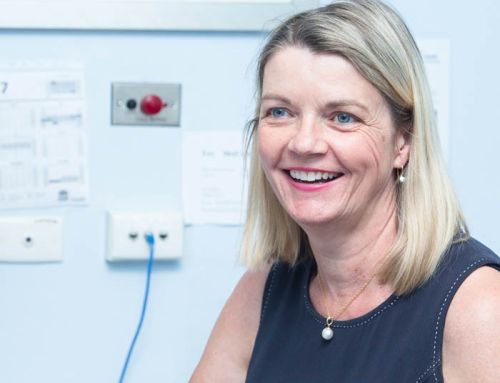ANZGOG’s ovarian cancer studies, ICON9 and STICs & STONEs have both closed to recruitment.
ICON9

ICON9 is led by Principle Investigator, Prof Linda Mileshkin
ICON9 is an international phase III randomised study to evaluate the efficacy of maintenance therapy with olaparib and cediranib or olaparib alone in patients with relapsed platinum-sensitive ovarian cancer following a response to platinum-based chemotherapy.
The study has now closed to recruitment after completing its accrual, recruiting a total of 111 patients (ANZ target was 110).
Prof Linda Mileshkin explains the study further:
“The goal of this international, investigator-initiated, randomised, placebo controlled, double blind Phase III trial is to improve outcomes for patients with recurrent ovarian cancer by investigating the addition of cediranib to olaparib maintenance therapy following completion of platinum-based chemotherapy for platinum-sensitive relapsed ovarian, fallopian tube or primary peritoneal cancer”
ICON9 is led by University College London (UCL), with ANZGOG being the lead group for Australia and New Zealand
in collaboration with the NHMRC CTC, at the University of Sydney.
“Well done to ANZ for contributing such a significant component of the international recruitment, which was able to be maintained despite the challenges of COVID.” Prof Linda Mileshkin
Next steps
ICON9 participants will continue on the study and will be followed up for an estimated three years. The trial teams will continue to collect biospecimens and trial data as they look to analyse health economic and progression data. The trial data will be analysed, and patient samples tested to address the outcomes of the study, including molecular subtyping and biomarker profiling.
We thank all participating women and their families, and participating sites, for their long-term commitment to the study.
STICs and STONEs
STICs and STONEs is a randomised phase II double-blind placebo-controlled trial of acetylsalicylic acid (aspirin) for prevention of ovarian cancer in women with BRCA1 and BRCA2 mutations.

STICs and STONEs is led by Principle Investigator, Prof Kelly-Anne Phillips
Women with a BRCA1 or BRCA2 gene abnormality are at increased risk of ovarian and fallopian tube cancers and often have their ovaries and tubes removed to prevent cancer. Microscopic cancers are sometimes seen at the time of this surgery. Some studies have suggested aspirin might reduce the risk of developing ovarian and fallopian tube cancers, but this is uncertain because the design of the previous studies were not optimal.
Prof Kelly-Anne Phillips, Principle Investigator of the study, explains STICs and STONEs further:
“The study will assign women with a BRCA1 or BRCA2 gene abnormality to daily aspirin or placebo for at least 6 months and no more than 24 months before their preventive surgery. We expect to see fewer cancers at the time of preventive surgery in the group of women that is assigned to aspirin compared with those assigned placebo. The study will provide a better understanding of how ovarian and fallopian tube cancers start and whether aspirin might be a useful prevention agent.”
STICs and STONEs is led by the Canadian Cancer Trials Group (CCTG), with ANZGOG being the lead group for Australia and New Zealand in collaboration with the NHMRC CTC, at the University of Sydney. The study has closed to recruitment after enrolling 37/70 patients.
Next steps
Women in the trial will take aspirin, or a placebo, daily for 6 to 24 months until their preventive surgery. The trial data will be analysed, and patient samples tested to assess the outcomes of the study, including the feasibility of aspirin as an intervention, assessment of inflammatory marks, and feasibility of detection methods for premalignant lesions.










